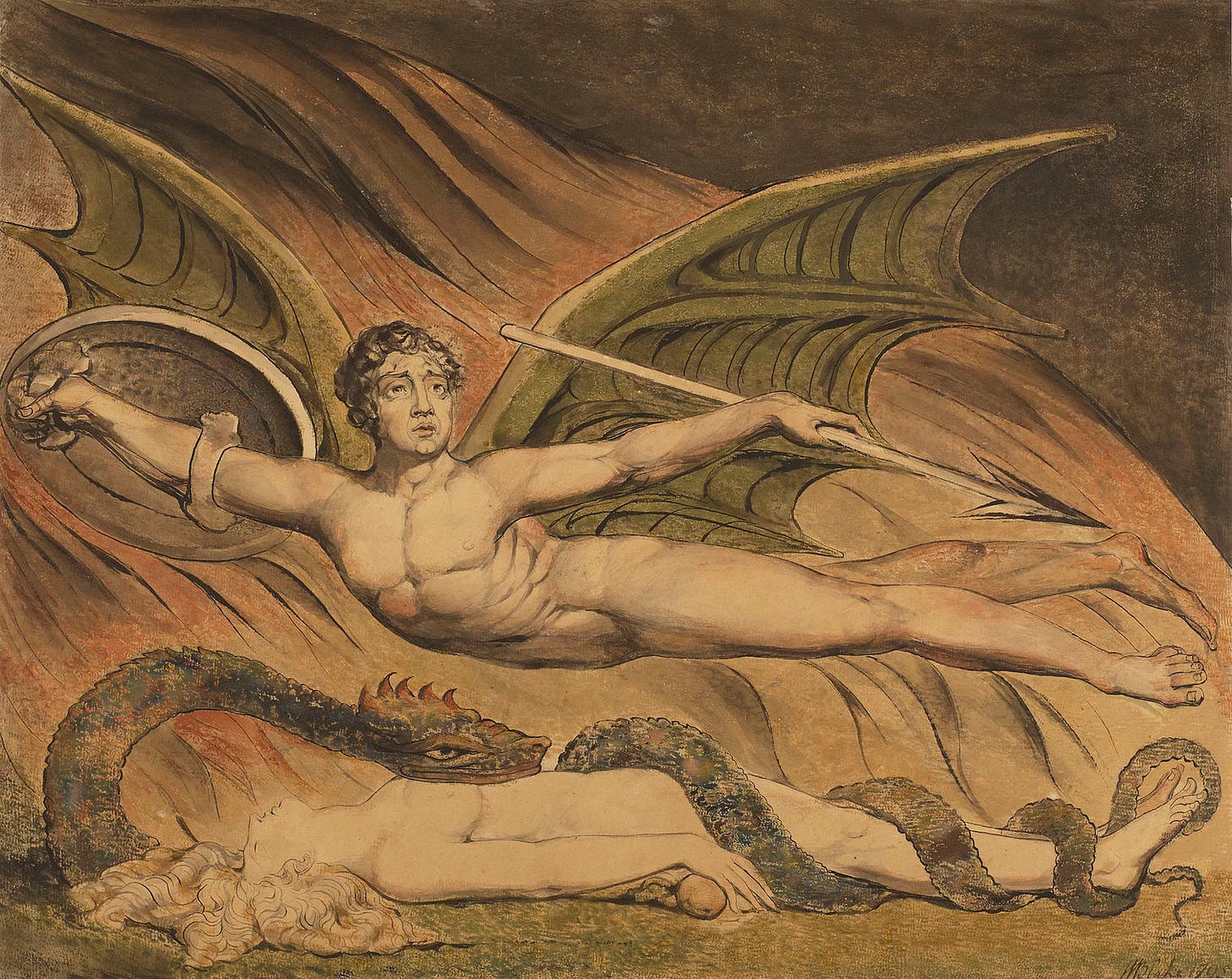Early Christianity, with Satan
Review of The Origin of Satan: How Christians Demonized Jews, Pagans, and Heretics by Elaine Pagels
This book covers the emergence of Christianity in context, detailed and vivid, from its origins in Palestine to its expansion westward. However, it focuses on the use of Satan, first as a kind of gadfly or tester of belief in the Jewish and Pauline traditions to the "cosmic war" of later Christianity, according to which opposition from without and within are portrayed as intrinsically evil and irredeemable.
The notion of Satan evolves from an angel who tests people for God, posing questions and proposing alternatives to the righteous in contravention of God's will, into the embodiment of evil, whether as an external being or as a force within one's heart and mind. Pagels explains this from early Biblical and "heretical" texts, with a keen eye on political developments of the time. In the beginning, in the Hebrew Bible, Satan (or Bielzebub and an array of other names) is an angel. Slowly, he becomes the force behind sectarian disagreements, from intra-Jewish ones to opponents of Jesus' supposed vision for the Jews. He also serves as the source of evil to be found in Goyim, or those who are not of the nation of Israel. Next, as Christianity progressively becomes dominated by gentiles, the notion of the devil's evil work moves from vilification of non-believing Jews, Romans, and Pagans, to the condemnation of those Christians who promote rival interpretations to one's own, ending in a question of what is in one's own heart and what causes one to sin.
All of these notions, Pagels argues persuasively, came to dominate the consciences of the various branches of monotheism over the next 2,000 years. With the accusation (or "demonization") of the "other" as irredeemably evil and not on the side of God and his righteous, it creates a kind of solidarity and certainty in the face of sometimes overwhelming odds – and an excuse to treat others as less than human. This makes her argument, in my view, essential reading.
I was looking for an examination of Satan himself, not only as a socio-political phenomenon, but as imagery, characterization, etc. As he appears in this book, Satan is a kind of morphing, murky force. While very interesting, I was disappointed and will have to seek the other perspective elsewhere.





Andrew Mark Henry has an episode in Religion for Breakfast on the development of Satan. https://youtu.be/5sYhbtk8jJc?si=LMtIUWGtKNAPPGDR
There's also an interview with Archie Wright on his book Satan and the Problem of Evil: From the Bible to the Early Church Fathers (Fortress Press, 2022) over at the New Books Network that was very insightful.
https://newbooksnetwork.com/satan-and-the-problem-of-evil
"I was looking for an examination of Satan himself, not only as a socio-political phenomenon, but as imagery, characterization, etc."
I'm one of those who think that Satan is largely a concept the Hebrews adopted from Zoroastrianism during the Babylonian Captivity. There are mentions of fallen angels in "The Book of Watchers", which is the first part of "The Book of Enoch"-a book that didn't make the cut and get into the official biblical canon at the Council of Nicaea-which is a shame because it's full of intriguing imagery. However, to actually get at that imagery takes more contextual study than I am willing to give it. I don't subscribe to any of the Abrahamic religions, but many of those who do understand allusions in a different way. I'm not a big reader of fiction, but I liked Anne Rice's vampire novels, and one of the later ones, "Memnoch the Devil", features a long section in the middle where Lestat (a frequent vampire protagonist) has a long dialogue with "the Devil" that I found thought-provoking. Rice herself was an interesting figure who was raised as an observant Roman Catholic, became agnostic, and much later in life reembraced her Catholicism for eleven years before distancing herself from that faith because of its reactionary stances on social issues, and spent her final years describing herself as a secular humanist-and as a member of the LGBTQIA community, I was happy to return her books to a place of honor on my shelves.